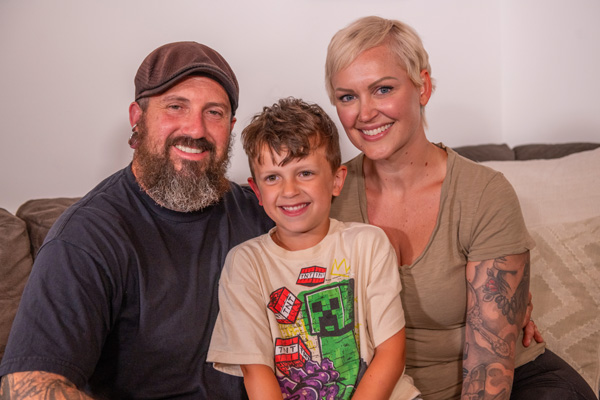Emergency Medicine
We provide 24-hour emergency care through 5 hospitals. Baystate Medical Center in Springfield is the only Level 1 Trauma Center and pediatric trauma center in western Massachusetts, providing all four community hospitals with access to trauma specialists.

All hospitals are staffed by board-certified emergency medical professionals, and all are open 24 hours every day. Baystate Medical Center in Springfield is the only Level 1 Trauma Center and pediatric trauma center in western Massachusetts, providing all four community hospitals with access to trauma-team specialists.
When Should You Go to the Emergency Room?
If your situation requires immediate medical treatment, call 911 or go to the nearest emergency room for:
- Severe bleeding
- Chest pains
- No pulse
- Inability to breathe
- Severe eye injuries
- Head, spinal cord or back injuries
- Broken bones
- Severe stomach pain
- Sudden change in mental state, sudden severe head ache, other stroke symptoms
Other Care Options
If your situation is not an emergency, please seek other care options including:
- Convenient Care (or urgent care)
- Primary Care
Intensive Care (Critical Care) at Baystate Medical Center
Intensive care, also called critical care, focuses on life-threatening conditions that may need sophisticated life support and monitoring. Doctors and nurses in Baystate Medical Center's intensive care unit (ICU) treat complications from surgery, accidents, infections, and severe breathing problems.
At Baystate Health, our ICU is run by board-certified critical care specialists whose primary disciplines are anesthesia, internal medicine, or surgery.
We’ve been recognized with a Beacon Award for Excellence by the American Association of Critical-Care Nurses. This means that our staff, our techniques, and our outcomes meet specific levels of quality. And it means that you and your loved ones are in good hands at Baystate Health.
If you or a loved one needs critical care, you can expect a highly trained team of medical specialists to help you. The doctors and nurses who work in critical care are experienced in respiratory failure, renal failure, hyperalimentation, septic shock, cardiogenic shock, intracranial pressure monitoring and control, gastrointestinal bleeding, and complex postoperative care.
Surgical teams typically include an upper-level resident, plus two or three interns or junior residents rotating from the surgical, anesthesia, obgyn, or emergency medicine programs. Medical teams typically include two senior medical residents, plus two or three interns rotating from medicine, med-peds (internal medicine and pediatrics), or emergency medicine.
Our ICU has active educational and research programs, which include bedside teaching rounds, daily classroom teaching, visiting lecturers, a core curriculum of ICU subjects, and published studies.
As a teaching hospital, we maintain the highest standards in care, quality, and modern techniques.

Jenn Venn's Breast Cancer Journey
Back to Top


